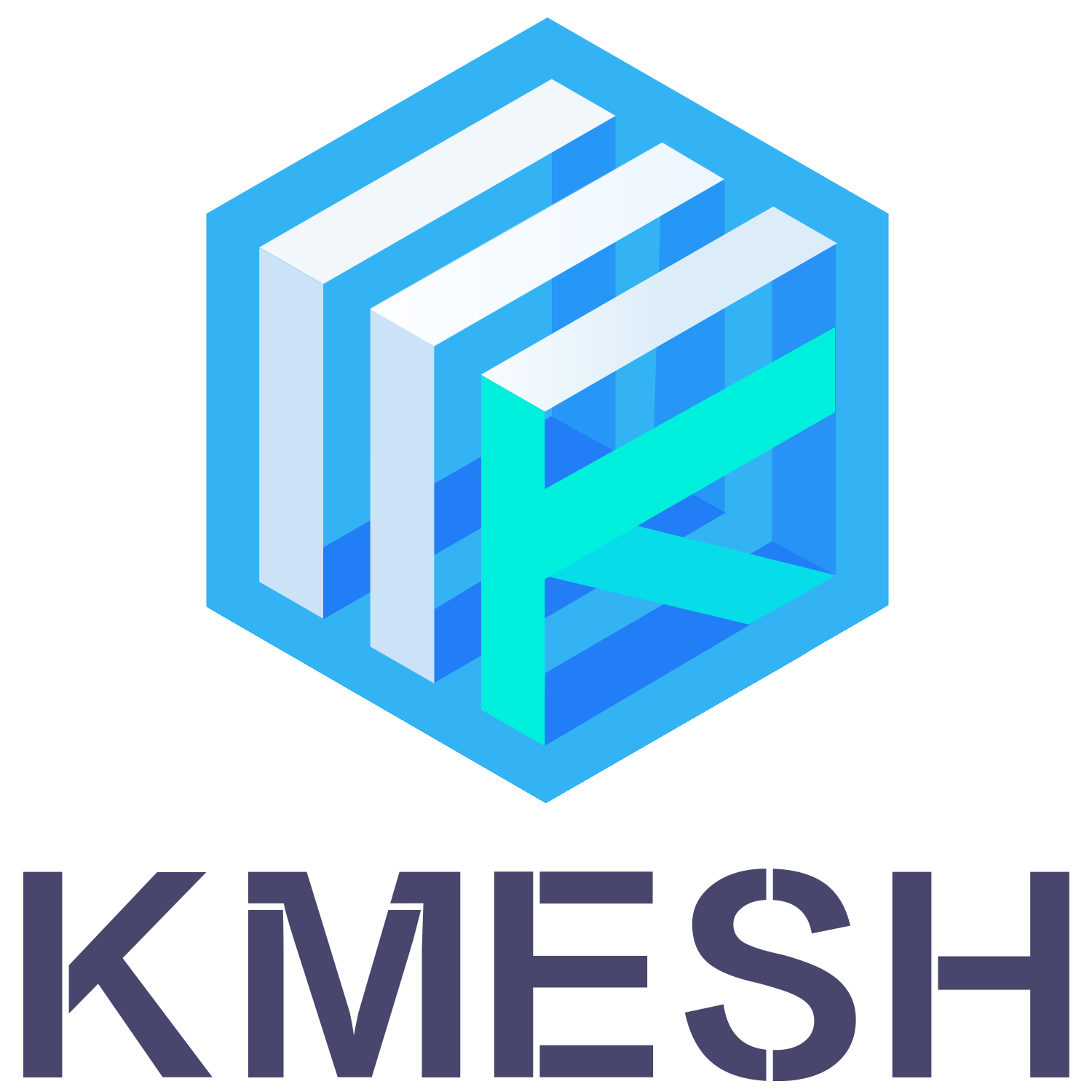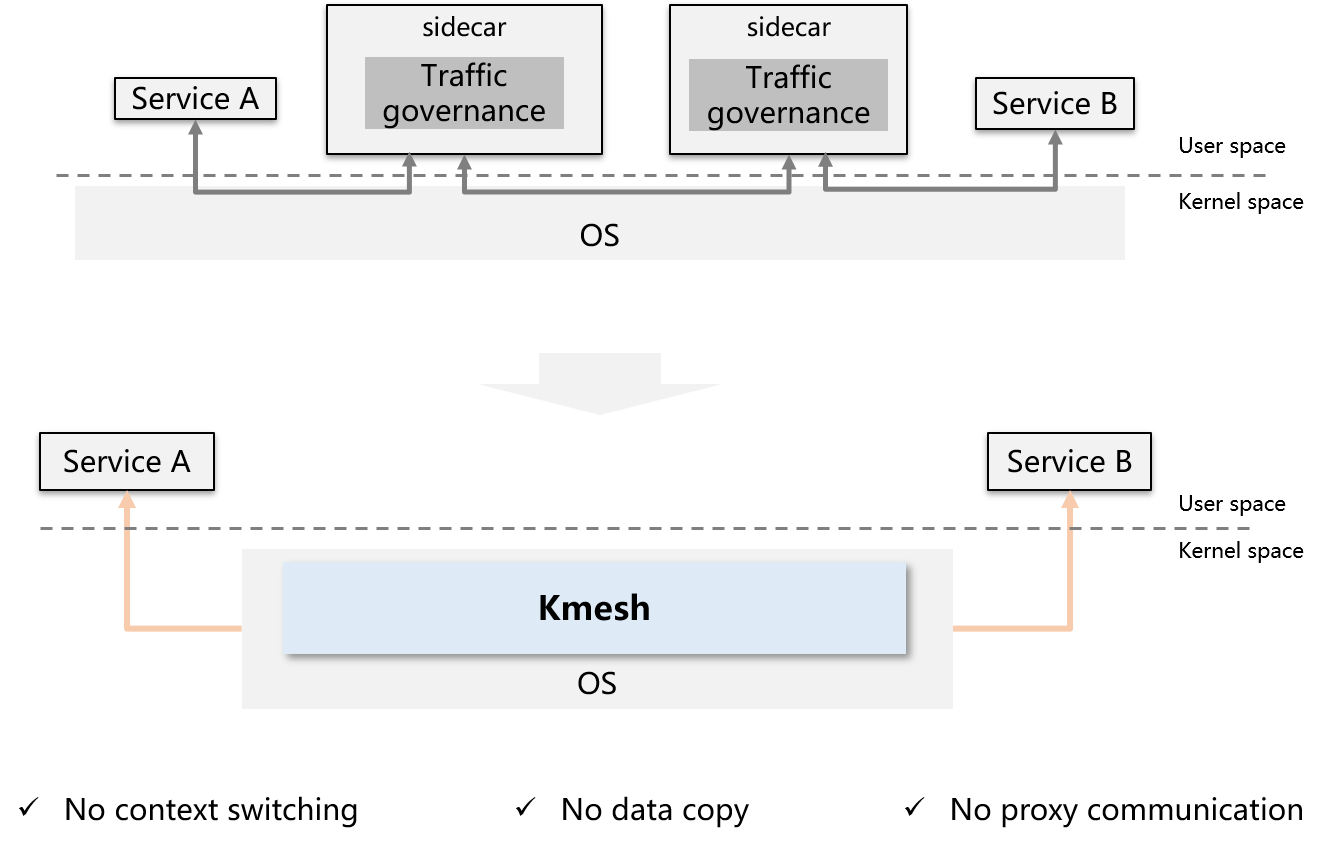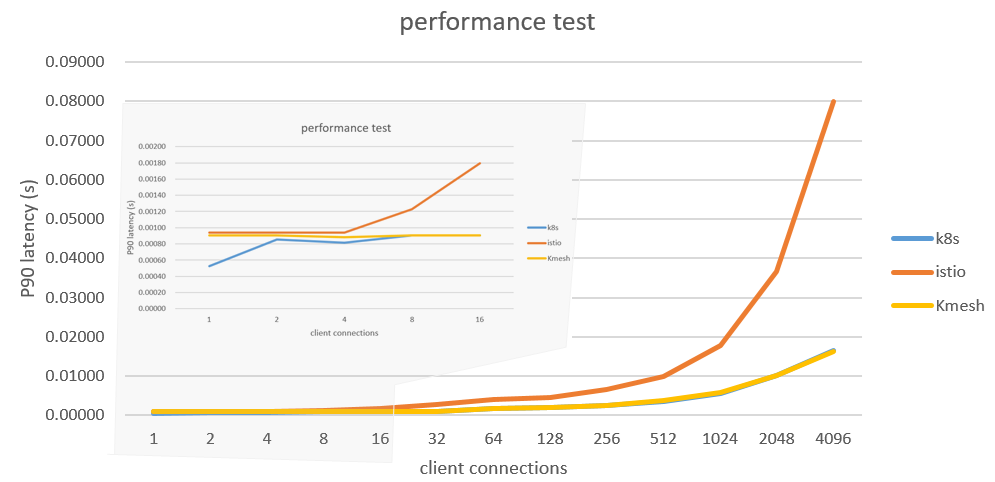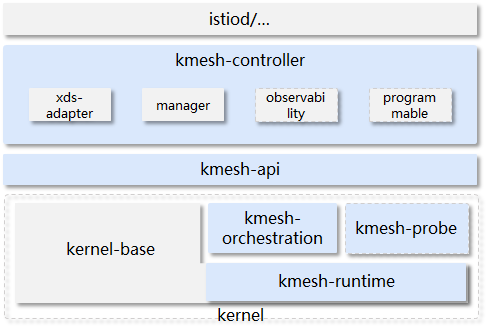Kmesh is a high-performance service mesh data plane software based on programmable kernel. Provides high-performance service communication infrastructure in service mesh scenarios.
The service mesh software represented by Istio has gradually become popular and has become an important component of cloud infrastructure. However, the current service mesh still face some challenges:
- Extra latency overhead at the proxy layer: Single hop service access increases by 2~3ms, which cannot meet the SLA requirements of latency-sensitive applications. Although the community has come up with a variety of data plane solutions to this problem, the overhead introduced by agents cannot be completely reduced.
- High resources occupation: The agent occupies extra CPU/MEM overhead, and the deployment density of service container decreases.
Kmesh innovatively proposes to move traffic governance to the OS, and build a transparent sidecarless service mesh without passing through the proxy layer on the data path.
Smooth Compatibility
- Application-transparent Traffic Management
- Automatically interconnecting with Istiod
High Performance
- Forwarding delay 60%↓
- Service startup performance 40%↑
Low Overhead
- ServiceMesh data plane overhead 70%↓
Safety Isolation
- eBPF Virtual machine security
- Cgroup level orchestration isolation
Full Stack Visualization
- E2E observation*
- Integration with Mainstream Observability Platforms*
Open Ecology
- Supports XDS protocol standards
Note: * Planning
-
prerequisite
- Currently, Kmesh connects to the Istio control plane. Before starting Kmesh, install the Istio control plane software. For details, see https://istio.io/latest/docs/setup/getting-started/#install.
- The complete Kmesh capability depends on the OS enhancement. Check whether the execution environment is in the OS list supported by Kmesh. For other OS environments, see Kmesh Compilation and Building.
-
Kmesh container image prepare
# add an image registry: ghcr.io [root@ ~]# cat /etc/docker/daemon.json { "insecure-registries": [ ..., "ghcr.io" ] } # docker pull [root@ ~]# docker pull ghcr.io/kmesh-net/kmesh:latest
-
Start Kmesh
# get kmesh.yaml from build/docker/kmesh.yaml [root@ ~]# kubectl apply -f kmesh.yaml
By default, the Kmesh base function is used, other function can be selected by adjusting the startup parameters in the yaml file.
-
Check kmesh service status
[root@ ~]# kubectl get pods -A -owide | grep kmesh default kmesh-deploy-j8q68 1/1 Running 0 6h15m 192.168.11.6 node1 <none>
-
View the running status of kmesh service
[root@ ~]# kubectl logs -f kmesh-deploy-j8q68 time="2023-07-25T09:28:37+08:00" level=info msg="options InitDaemonConfig successful" subsys=manager time="2023-07-25T09:28:38+08:00" level=info msg="bpf Start successful" subsys=manager time="2023-07-25T09:28:38+08:00" level=info msg="controller Start successful" subsys=manager time="2023-07-25T09:28:38+08:00" level=info msg="command StartServer successful" subsys=manager
More compilation methods of Kmesh, See: Kmesh Compilation and Construction
Based on Fortio, the data plane execution performance of Kmesh and Envoy was compared and tested. The test results are as follows:
For a complete performance test, please refer to Kmesh Performance Test.
The main components of Kmesh include:
-
kmesh-controller:
Kmesh management program, responsible for Kmesh lifecycle management, XDS protocol docking, observation and DevOps, and other functions.
-
kmesh-api:
The API interface layer provided by Kmesh mainly includes: orchestration API after xds conversion, observation and DevOps channels, etc.
-
kmesh-runtime:
The runtime implemented in the kernel that supports L3~L7 traffic orchestration.
-
kmesh-orchestration:
Implement L3-L7 traffic scheduling based on ebpf, such as routing, grayscale, load balance, etc.
-
kmesh-probe:
Observation and DevOps probes, providing end-to-end observation capabilities.
-
Command List
-
Demo
If you have questions, feel free to reach out to us in the following ways:
If you're interested in being a contributor and want to get involved in developing the Kmesh code, please see CONTRIBUTING for details on submitting patches and the contribution workflow.
Kmesh is under the Apache 2.0 license. See the LICENSE file for details.
Kmesh documentation is under the CC-BY-4.0 license.
This project was initially incubated in the openEuler community, thanks openEuler Community for the help on promoting this project in early days.




